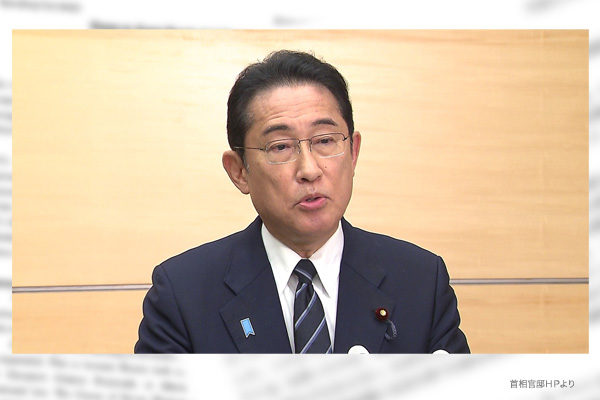“I have squarely faced challenges one by one, made decisions, and taken actions in the past two years,” Prime Minister Fumio Kishida told reporters on October 3, a day before the second anniversary of his administration. His cabinet’s approval of the National Security Strategy and two other security documents last December and his decision to increase Japan’s defense spending to 2% of gross domestic product in fiscal 2027 are commendable. Within his government, however, there is concern that the driving force to implement the three documents and other policies is slowing.
Delayed legislation for cyber defense
For instance, the National Security Strategy included the introduction of “active cyber defense” to hack into cyber attackers’ servers and render them harmless to enhance cyber defense. The Act on the Prohibition of Unauthorized Computer Access will have to be amended to hack into apparent cyber attackers’ servers. Some say the interpretation of Article 21 of the constitution, which guarantees the secrecy of communications, should also be made clear.
On the occasion of the Ukraine War, Russia repeated cyberattacks on Ukraine even before the invasion. The enhancement of cyber defense is an urgent task and a bill to this end needs to be developed soon. However, the Kishida administration has no mood to submit such bill to next year’s ordinary National Diet session, let alone the planned extraordinary Diet session this autumn, a government official said. Kishida is said to be cautious about submitting such a confrontational bill in consideration of his potential dissolution of the House of Representatives, or the Lower House, for a general election, because the bill has been criticized as leading to surveillance on citizens and invasion of privacy.
In the morning edition on October 4, or the second anniversary of the Kishida administration, a Yomiuri Shimbun newspaper article was headlined “Won’t Narrow Dissolution Options.” The Asahi Shimbun newspaper carried a headline “Prime Minister Using Dissolution Card Both in Autumn and Winter.” They indicated a lingering Diet rumor that Kishida may dissolve the Lower House soon for a general election. It is unusual for a prime minister to use the Lower House dissolution card so often.
The first half of the four-year term of office for the current Lower House lawmakers ends in October. Given that the average number of days in office for Lower House members under the current constitution is 1,020 days (about 2 years and 10 months), it is not surprising for Kishida to dissolve the Lower House for a general election at any time. If Kishida floats a rumor about his potential Lower House dissolution, lawmakers may lose mental capacity to focus on policy planning in the Diet.
Waiting until Trump’s victory amounts to putting the cart before the horse
According to another government official, there is an air in the government that it is better to wait and see until former President Donald Trump wins next year’s U.S. presidential election and urges Japan and other allies to beef up their defense capabilities, as widely expected. It amounts to putting the cart before the horse.
Kishida should not play with the Lower House dissolution card but implement cyber defense and other policy measures swiftly.
Takashi Arimoto is a Planning Committee member at the Japan Institute for National Fundamentals and publisher of Monthly Magazine SEIRON at the Sankei Shimbun newspaper.


